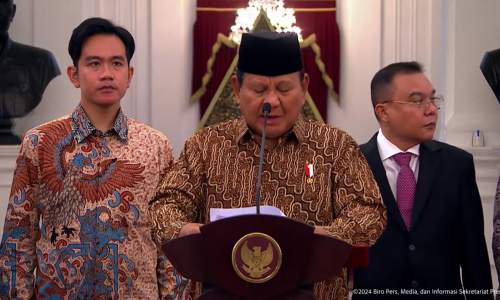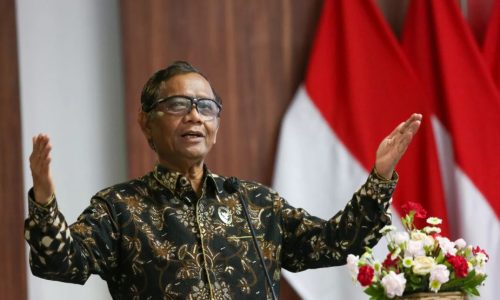Top leadership in the Indonesian Chamber of Commerce and Industry (Kadin) and the Indonesian Central Bank (BI) met on Tuesday, June 25, 2024, to discuss strategies for achieving the “golden economy” by 2045, while also addressing current economic challenges, including the weakening rupiah.
A statement by Kadin said that BI Governor, Perry Warjiyo, came to discuss both current and future national economic growth with the organization’s senior officials.
“Indonesia needs an economic growth rate of around 6 percent to 7 percent to escape the middle-income trap,” Kadin said on Tuesday.
The weakening of rupiah against the US dollar has generated concern due to its potential impact on domestic economy. BI data shows the rupiah has depreciated by more than 6 percent year-to-date.
Finance Minister Sri Mulyani Indrawati highlighted several negative impacts of the rupiah’s depreciation on the state budget (APBN).
“Its effect is on government expenditures that use foreign currency, such as subsidies for electricity, fuel, and LPG,” Sri Mulyani told a media conference on Monday.
These subsidies are currently deviating from this year’s macro assumptions. Over the past week, the rupiah weakened to Rp16,400 per US dollar, while the 2024 APBN set the exchange rate at Rp15,000 per US dollar.
Sri Mulyani mentioned that the subsidy discrepancies caused by the rupiah’s weakening would be billed to the government by State oil and gas company PT Pertamina and State electricity company PT PLN.
“Every quarter, we ask BPKP (the Development Finance Comptroller) to audit, and we pay according to the country’s capabilities,” she said.
The current energy subsidy expenditure remains in line with the 2024 APBN, amounting to Rp300 trillion (US$18 billion).
Political economy analyst Kusfiardi of the FINE Institute noted that the rupiah’s depreciation could reduce state revenue from exports, significantly affecting next year’s revenue and expenditure flows.
“Although export commodity prices like oil and coal are rising, the rupiah-denominated profits the government receives may be eroded,” Kusfiardi said on Tuesday.
He emphasized that export diversification is crucial to mitigate risks from foreign currency fluctuations.
“With the rupiah weakening so drastically, Indonesia faces significant challenges in maintaining national economic stability,” he said.









